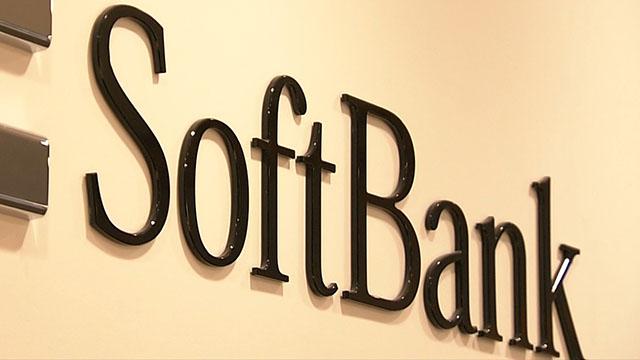Phones silenced
Many people were trying in vain to contact their friends, clients, or family on Thursday night.

One woman at Shibuya Station says she was scheduled to meet her friend that night. But in the afternoon, she suddenly found she was unable to make calls or send or receive any messages and other data. "I can't reach my friend. I'll give up and just go home," the woman said.
Dozens of people were queuing outside a public telephone booth -- a rare sight nowadays. One woman said, "It's my first time ever to use a public phone. But I have to call my office right away."

Services Disrupted
Mobile phone operator Softbank says the problem hit its networks at 1:39 PM JST. Customers were unable to make calls or use the internet for about 4.5 hours.
The system outage affected various services, including online payments, logistics and traffic. The company has about 40 million subscribers as of September. Fire Departments across the country requested that people use landlines or networks other than Softbank's if they needed to call an ambulance or a fire engine.
Some electronic payment systems linked to Softbank's networks went down. East Japan Railway says users of its mobile ticket service were unable to top up their accounts. Electronic payment service company Pay Pay's systems were also affected.
Low-cost carrier Jetstar Japan says 3 flights leaving Narita Airport were delayed by up to 15 minutes because staff had to manually check passengers' boarding passes.
Transport company Sagawa Express says it failed to send data about collecting and delivering parcels to its truck drivers, resulting in massive delays.
At concert halls, troubles emerged over electronic tickets. In the city of Takamatsu, Kagawa Prefecture, rock concert organizers had to ask customers to take screenshots of their tickets before coming to the hall.
One Softbank user said with a sigh, "Smartphones are truly a convenience but this case made me well aware of just how dependent we are on them."
The system began to come back online slowly at around 6:04 PM JST.

Reason for disruption
Softbank officials say the nationwide disruption in its network stemmed from errors in specific software versions made by Swedish communication giant Ericsson.
They say they found software errors in all of its packet-switching machines across the country which they introduced 9 months ago.
An analysis indicated the main issue was an expired certificate in the software versions installed with Softbank and customers in 10 other countries.
Services at Softbank resumed after it switched to an older version of the software.
Softbank issued a statement and deeply apologized to its customers for the immense inconveniences caused by the outage. The company added it will work to prevent a recurrence.

Communication Ministry: Severe Accident
Softbank executives visited the Communications Ministry on December 7th and explained the cause of the network disturbance to government officials.
Japan's Chief Cabinet Secretary Yoshihide Suga told reporters, "It's extremely regrettable that the disruption caused inconvenience for many people for more than 4 hours."
Communication Ministry officials said that the outage constitutes a "severe accident" set by law and urged Softbank to submit a report within 30 days.
The ministry will take up the issue at an expert panel and is likely to impose an administrative penalty.
MM Research Institute's Hideaki Yokota, an expert on the smartphone business, called the incident "a new type of natural disaster" in technology. Yokota says, "Smartphones have become a lifeline and being unable to use them would cause major havoc. From now on, the whole communications industry must be aware of the potential risks and discuss how to prevent a recurrence."

